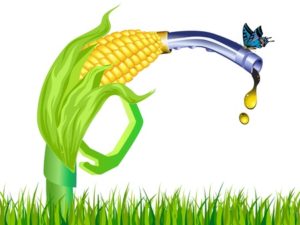A closer look at how biofuel will change our way of life
Yinan Liu CONTRIBUTOR
What is one of the hottest topics around the world today? Climate change, of course!
With the recent decision made by U.S. President Donald Trump to withdraw the U.S. from the Paris Climate Accord, the topic of climate change has once again been in the headlines. According to a former report released by the United Nations, if countries around the world stand still and do nothing, then during the 21st century, the global surface temperature is likely to rise a further 0.3 to 1.7 °C (0.5 to 3.1 °F) in the lowest emissions scenario, and 2.6 to 4.8 °C (4.7 to 8.6 °F) in the highest emissions scenario. Since the primary suspects for the cause of global climate change are fossil fuels, many countries around the world are now trying to replace them with renewable sources of energy. That is when biofuel comes into the spotlight.
Biofuel is the general term for energy sources that come from living matter. It has been a hot topic recently as it emits fewer greenhouse gases than other fuel sources, and it is a renewable energy source. Several sources of biomass have been proven to be potential candidates for producing biofuel, including algae, jatropha tree, and fungi.
Biofuel production is a complex, multi-step process that combines both biological and chemical technologies. Phase change, sugar production, and sugar-ethanol conversion are the main steps. Phase change makes the raw materials easy to transform through a chemical reaction to simple sugars. Afterward, several types of alcohols can be produced by fermentation. C5H10O isomers are potential energy storage molecules, which can form during the biodegradation of several sources of biomass, and some of them might have high-energy and high-density structures.
Compared to fossil fuels, biofuels indeed have many strengths, the most important one being that it is a renewable resource. Unlike fossil fuels, which cannot be regenerated, biofuel can be generated again and again from living organisms around us. Also, even when it comes to combustion, biofuel has some advantages over fossil fuel. Take bioethanol, for example; although it produces lesser energy than traditional gasoline, it makes up for this by having a higher octane rating, meaning it will have far less energy knocking, thus giving a far smoother ride.
On the other hand, biofuel also has its weaknesses as well. The most prominent one is that biofuel production uses food crops such as maize to generate biofuel. Thus, scientists are worried that if biofuel is to completely replace fossil fuels, then it will take up more arable farmland and affect food safety, especially in developing countries. This is one of the main reasons why biofuel still cannot completely replace fossil fuels until now.
However, scientists are not easily scared by this challenge. In fact, they have come up with many smart ways of overcoming the aforementioned weakness. Producing biofuel from food crops only counts as a first-generation biofuel. Second-generation biofuels are fuels manufactured from various types of biomass. Biomass is a wide-ranging term meaning any source of organic carbon that is renewed rapidly as part of the carbon cycle. Biomass is derived from plant materials, but can also include animal materials. Then, there is also third-generation biofuel, which uses algae as a biofuel source. According to scientists from the United States, third-generation biofuel offers estimates for the realistic replacement of all vehicular fuel with biofuels by using algae that has a natural oil content greater than 50%, which can be grown on algae ponds at wastewater treatment plants.
Unfortunately, scientific research is not always a smooth ride. Until now, only first-generation biofuel has been successfully commercialized because there are still significant drawbacks in both the second and third-generation biofuels. However, does that mean biofuel is indeed a poison? I do not think so. After all, looking back in history, new inventions do not always seem to work well at first (when the steam locomotive was first invented, it couldn’t even run faster than a carriage), but eventually, people overcame all the obstacles, and these new inventions changed the world. So, who is there to say that biofuel is not next?




